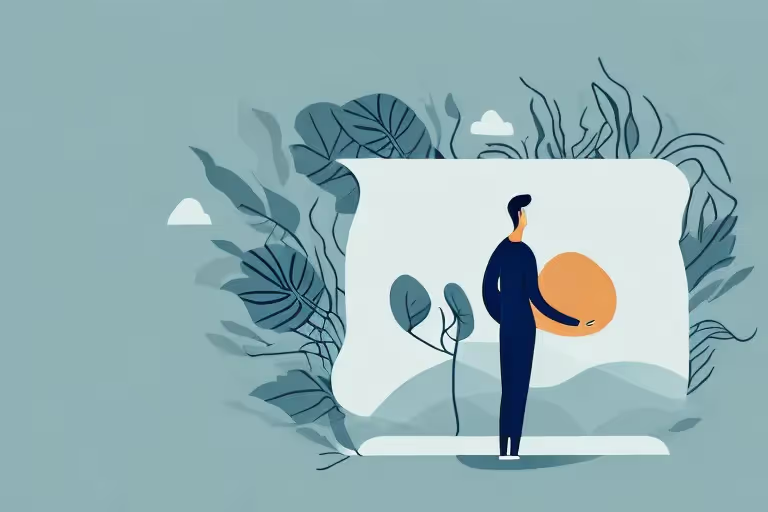In a world where knowledge is often considered power, it may seem counterintuitive to suggest that ignorance can be beneficial. However, there are many ways in which not knowing certain things can lead to greater happiness, contentment, and even personal growth. This article will explore the concept of ignorance, the different types of ignorance, and the benefits and drawbacks associated with it.
Understanding the Concept of Ignorance
Before diving into the benefits and downsides of ignorance, it's important to define what we mean by the term. Ignorance is generally understood to mean a lack of knowledge or information about a particular subject or topic. However, it's worth noting that not all forms of ignorance are created equal, and some may have more positive or negative effects than others.
Defining Ignorance
At its core, ignorance is simply the absence or lack of knowledge about a specific subject or area. It can be the result of a lack of exposure or education, or a conscious decision to avoid learning about something. For example, someone may be ignorant about a particular culture, language, or skill because they have never encountered it, were not exposed to it in their upbringing, or because they have not had the opportunity or desire to learn about it.
However, it's important to note that ignorance is not always a negative thing. In some cases, ignorance can be bliss. For example, a person may choose to remain ignorant about a traumatic event in their past to avoid reliving the pain and trauma associated with it. In this case, ignorance can be seen as a coping mechanism or a form of self-preservation.
Different Types of Ignorance
Ignorance can take many forms and can be related to different types of knowledge or information. For example, someone may be ignorant of scientific principles, historical events, or social norms. The type of ignorance can also vary in degree, from a basic lack of knowledge to a willful disregard for facts.
One type of ignorance that is particularly harmful is willful ignorance. This is when a person actively chooses to ignore or reject information that conflicts with their beliefs or worldview. Willful ignorance can lead to the spread of misinformation and can be a major obstacle to progress and change.
The Role of Ignorance in Society
Ignorance can play a role both individually and collectively in society. On an individual level, someone may choose to remain ignorant about a particular subject to avoid feelings of discomfort, anxiety, or inadequacy. For example, a person may refuse to learn about financial management to avoid feeling overwhelmed or intimidated by the subject matter.
However, ignorance can also have societal implications by contributing to stereotypes, prejudice, and misinformation. In some cases, ignorance can even lead to discrimination or conflict between groups with differing beliefs or values. For example, a lack of understanding about different religions or cultures can lead to xenophobia and racism.
Despite the negative effects of ignorance, it's important to remember that everyone is ignorant about something. No one can know everything, and it's okay to admit when we don't know something. In fact, acknowledging our ignorance can be the first step towards learning and growth.
The Psychological Benefits of Ignorance
There are several psychological benefits associated with ignorance that can lead to greater happiness and contentment. These benefits stem from the reduced stress and anxiety associated with not knowing certain things.
However, it is important to note that ignorance does not mean avoiding all knowledge or information. Rather, it refers to choosing not to engage with certain types of information that may be harmful or unhelpful to one's well-being.
Reduced Anxiety and Stress
Not knowing certain things can often lead to reduced anxiety and stress levels. For example, someone who avoids reading news headlines or current events may be spared feelings of helplessness, anger or despair that can accompany exposure to negative or frightening information.
Similarly, someone who avoids comparing themselves with others or seeking validation from external sources may experience greater self-acceptance and inner peace. This can lead to a more positive outlook on life and a greater sense of well-being.
Increased Happiness and Contentment
Ignorance can also contribute to a greater sense of happiness and contentment. By choosing to focus on positive experiences and emotions, rather than dwelling on negative or stressful ones, individuals may find themselves feeling more fulfilled and satisfied with their lives.
For example, someone who chooses to surround themselves with uplifting and positive people, rather than those who are negative or critical, may experience greater levels of happiness and contentment. This can lead to a more positive and fulfilling life overall.
Simplified Decision-Making Process
Not knowing everything can also make decision-making processes simpler and more straightforward. When faced with a difficult choice, someone who is ignorant of the potential outcomes or consequences may be less likely to experience decision paralysis or regret.
This can result in a greater sense of clarity and purpose. By focusing on what is truly important and relevant to their lives, individuals can make more confident and informed decisions that align with their values and goals.
In conclusion, while ignorance is often viewed as a negative quality, it can actually have several positive psychological benefits. By choosing to focus on what is truly important and relevant to their lives, individuals can experience reduced stress and anxiety, increased happiness and contentment, and a more simplified decision-making process.
The Social Benefits of Ignorance
Ignorance can be seen as a negative trait, but it can also have several social benefits that can improve communication, foster open-mindedness, and encourage curiosity and learning.
Fostering Open-Mindedness and Tolerance
By remaining ignorant about certain subjects or viewpoints, individuals may be more likely to approach others with an open mind and greater tolerance. This is because they have not formed any preconceived notions or biases about the topic or group in question. For example, someone who has never learned about a particular religion or cultural tradition may be less likely to hold negative stereotypes or biases about members of that group. This can lead to greater understanding, empathy, and connection with others.
Furthermore, being ignorant about a particular topic or viewpoint can also encourage individuals to actively seek out information and perspectives that they may not have considered before. This can lead to a more well-rounded and informed worldview, and can also help individuals to better understand and appreciate the diversity of human experience.
Encouraging Curiosity and Learning
Paradoxically, ignorance can also encourage curiosity and a desire to learn. By recognizing what they don't know, individuals may be more motivated to seek out new information and experiences. This can lead to personal growth, increased knowledge, and a greater sense of accomplishment.
Furthermore, being ignorant about a particular subject can also spark curiosity and interest in that topic. For example, someone who knows very little about astronomy may become fascinated by the stars and planets after attending a stargazing event or reading a book about the subject. This newfound interest can then lead to a lifelong passion for learning and discovery.
Strengthening Relationships and Communication
By focusing on what they do know, individuals may also be better able to communicate their thoughts and feelings effectively. This is because they have a solid foundation of knowledge and understanding on which to base their arguments and opinions. This can lead to deeper, more meaningful relationships with others, and greater feelings of connectedness and belonging.
Furthermore, being ignorant about certain topics can also encourage individuals to ask questions and seek clarification when communicating with others. This can lead to more effective communication and can also help to prevent misunderstandings and conflicts.
In conclusion, while ignorance is often seen as a negative trait, it can also have several social benefits. By fostering open-mindedness, encouraging curiosity and learning, and strengthening relationships and communication, ignorance can ultimately lead to a more connected, empathetic, and informed society.
The Downside of Ignorance
While there are certainly benefits to ignorance, there are also several downsides that are important to consider.
The Dangers of Willful Ignorance
Perhaps the most significant drawback of ignorance is the potential for harm it can cause. When individuals deliberately choose to remain ignorant about important subjects or willfully ignore evidence or facts that contradict their beliefs, they can contribute to the spread of misinformation and perpetuate harmful stereotypes and biases.
The Importance of Balance and Self-Awareness
It's important to recognize that not all forms of ignorance are created equal, and that there are times when it's necessary or even beneficial to seek out new knowledge and information. Striking a balance between curiosity and ignorance requires self-awareness and a willingness to challenge one's own assumptions and biases.
When Ignorance Becomes Detrimental
Finally, it's important to acknowledge that certain types of ignorance can be harmful or even dangerous. For example, refusing to learn about important health or safety information can put oneself or others at risk. Similarly, ignoring or denying the lived experiences of marginalized individuals can perpetuate systemic inequalities and lead to further harm.
Conclusion
Overall, while ignorance may have a bad reputation, it's important to recognize that there are benefits and drawbacks associated with it. By understanding the different types and implications of ignorance, individuals can make more informed decisions about what they choose to learn about or remain ignorant of. Ultimately, striking a balance between curiosity and ignorance can lead to a happier, more fulfilling life.
Aura is Your All In One App for Meditation, Mindfulness Wellbeing
Find peace every day with one app for your whole well-being. There is no one-size-fits-all solution to mental well-being. Aura is the first all-in-one wellness app that learns how to best help you. Discover an endless library of expert-created tracks for your well-being, all taught by the world’s best coaches, therapists, and storytellers. With Aura's personalized recommendations, you can find peace every morning, day and night.



.webp)






.avif)

%20(1).avif)


.avif)
.avif)
.webp)


.avif)


















































































































.avif)

















.svg)



.avif)





